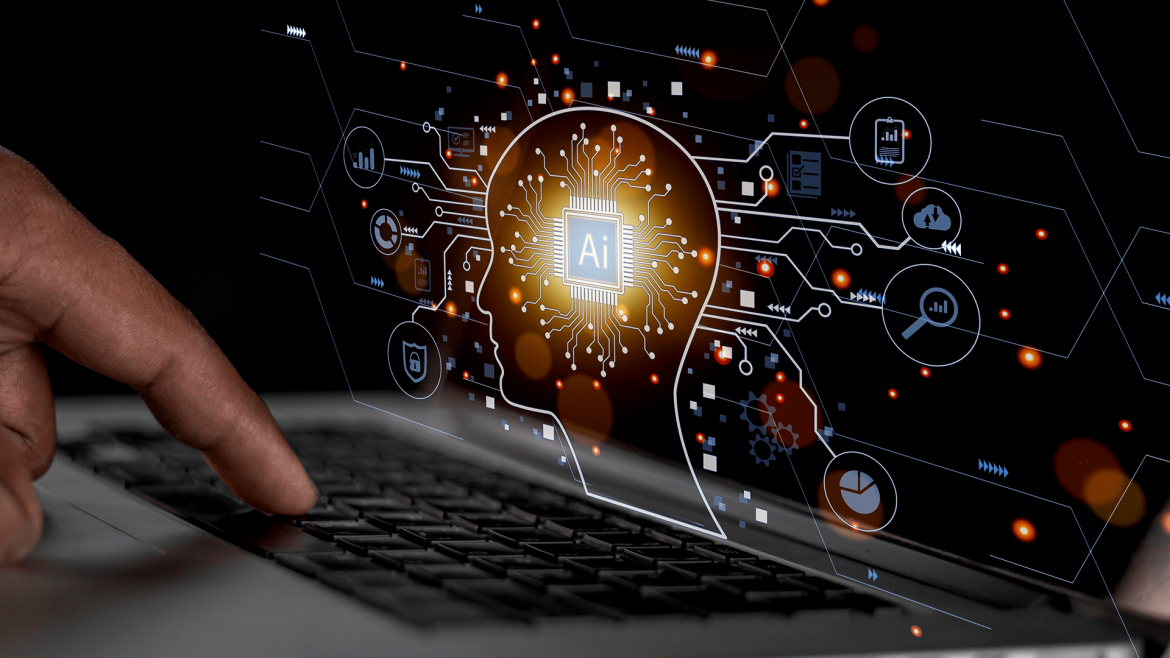In the digital age, personalization has become a key driver of customer engagement and satisfaction. Artificial Intelligence (AI) is at the forefront of this transformation, enabling businesses to offer highly tailored experiences that meet individual needs and preferences. AI-powered personalization leverages advanced algorithms and data analytics to create customized interactions, recommendations, and solutions. This article explores the concept of AI-powered personalization, its applications, benefits, challenges, and future trends.

Understanding AI-Powered Personalization
AI-powered personalization involves using AI technologies, such as machine learning, natural language processing, and data analytics, to deliver customized experiences based on individual user data. This approach allows businesses to understand and predict customer preferences, behaviors, and needs, enabling them to offer more relevant and engaging interactions.
- Machine Learning (ML):
- Definition: ML algorithms analyze large datasets to identify patterns and make predictions. These algorithms can learn from user behavior and continuously improve their accuracy over time.
- Applications: ML is used to personalize content recommendations, optimize marketing campaigns, and enhance customer service interactions.
- Natural Language Processing (NLP):
- Definition: NLP enables computers to understand and interpret human language. It allows for more natural and intuitive interactions between users and AI systems.
- Applications: NLP is used in chatbots, virtual assistants, and sentiment analysis to provide personalized responses and understand user intent.
- Data Analytics:
- Definition: Data analytics involves analyzing and interpreting data to uncover insights and trends. It plays a crucial role in understanding customer behavior and preferences.
- Applications: Data analytics helps businesses segment their audience, track user interactions, and measure the effectiveness of personalization strategies.
Key Applications of AI-Powered Personalization
- E-Commerce:
- Product Recommendations: AI algorithms analyze browsing history, purchase behavior, and preferences to provide personalized product recommendations. This increases the likelihood of cross-selling and upselling, enhancing the shopping experience.
- Dynamic Pricing: AI can adjust prices in real-time based on factors such as demand, competition, and customer behavior. This ensures that pricing is optimized for each individual customer.
- Marketing and Advertising:
- Targeted Ads: AI-powered personalization enables businesses to deliver targeted ads based on user interests, demographics, and behavior. This improves ad relevance and increases conversion rates.
- Email Campaigns: AI can personalize email content, subject lines, and sending times based on user preferences and engagement history. This results in higher open and click-through rates.
- Customer Service:
- Chatbots and Virtual Assistants: AI-powered chatbots and virtual assistants provide personalized support by understanding user queries and offering relevant solutions. They can handle routine tasks, answer questions, and escalate complex issues to human agents.
- Predictive Support: AI can analyze historical data to predict and address potential customer issues before they arise. This proactive approach enhances customer satisfaction and reduces support costs.
- Content Creation:
- Personalized Content: AI algorithms can generate personalized content, such as articles, social media posts, and product descriptions, tailored to individual user preferences and interests.
- Content Curation: AI-powered tools curate content based on user behavior and preferences, ensuring that users receive relevant and engaging material.
- Healthcare:
- Personalized Treatment Plans: AI analyzes patient data to recommend personalized treatment plans, predict health risks, and suggest preventive measures. This improves patient outcomes and enhances the quality of care.
- Virtual Health Assistants: AI-powered health assistants provide personalized health advice, medication reminders, and appointment scheduling, improving patient engagement and adherence.

Benefits of AI-Powered Personalization
- Enhanced Customer Experience:
- Relevance: Personalized interactions ensure that customers receive content, products, and services that are relevant to their needs and preferences, leading to a more satisfying experience.
- Engagement: AI-powered personalization increases user engagement by offering tailored recommendations and solutions that resonate with individual interests.
- Increased Conversion Rates:
- Targeted Offers: Personalized recommendations and targeted ads lead to higher conversion rates, as users are more likely to act on offers that align with their preferences.
- Improved Retention: Personalized experiences foster customer loyalty and retention by addressing individual needs and creating a sense of value.
- Efficiency and Cost Savings:
- Optimized Resources: AI-powered personalization optimizes marketing and customer service efforts, reducing the need for broad, one-size-fits-all approaches and minimizing wasted resources.
- Automated Processes: AI-driven automation streamlines routine tasks, such as content creation and customer support, freeing up human resources for more strategic activities.
- Data-Driven Insights:
- Actionable Data: AI analyzes vast amounts of data to uncover actionable insights, helping businesses understand customer behavior, preferences, and trends.
- Continuous Improvement: AI systems learn from user interactions and feedback, allowing businesses to continuously refine and improve their personalization strategies.
Challenges and Considerations
- Data Privacy and Security:
- User Consent: Collecting and using personal data for personalization requires explicit user consent. Businesses must ensure that they comply with data protection regulations and maintain transparency with users.
- Data Security: Protecting user data from breaches and unauthorized access is crucial. Implementing robust security measures and safeguarding sensitive information are essential for maintaining user trust.
- Accuracy and Bias:
- Algorithmic Bias: AI algorithms may unintentionally perpetuate biases present in training data, leading to unfair or discriminatory outcomes. Ensuring that algorithms are trained on diverse and representative data is important for mitigating bias.
- Prediction Accuracy: AI-powered personalization relies on accurate predictions and recommendations. Ensuring the accuracy of algorithms and regularly updating models is essential for maintaining effectiveness.
- User Experience:
- Over-Personalization: Excessive personalization can sometimes lead to user discomfort or privacy concerns. Striking a balance between relevance and intrusion is important for maintaining a positive user experience.
- Complexity: Implementing and managing AI-powered personalization systems can be complex and resource-intensive. Businesses need to invest in the right technology and expertise to effectively leverage AI.
Future Trends in AI-Powered Personalization
- Hyper-Personalization:
- Real-Time Adaptation: Future advancements will enable real-time adaptation of personalization strategies based on immediate user interactions and feedback, providing even more relevant and timely experiences.
- Contextual Awareness: AI will become more contextually aware, taking into account factors such as location, mood, and current activities to offer highly customized interactions.
- Integration with Other Technologies:
- IoT and AI: The integration of AI with the Internet of Things (IoT) will enable more personalized experiences through interconnected devices, such as smart home systems and wearable technology.
- Augmented Reality (AR): AR combined with AI will provide immersive and interactive personalized experiences, enhancing how users engage with digital content in their physical environment.
- Ethical Considerations:
- Responsible AI: The development of ethical guidelines and practices for AI-powered personalization will be crucial in addressing privacy concerns, ensuring fairness, and maintaining user trust.
- Transparency: Providing users with transparency about how their data is used for personalization will be important for building trust and ensuring informed consent.

Conclusion
AI-powered personalization is revolutionizing the way businesses interact with customers, offering tailored experiences that enhance engagement, satisfaction, and loyalty. By leveraging AI technologies, businesses can deliver highly relevant content, recommendations, and solutions that resonate with individual needs and preferences. While there are challenges related to data privacy, accuracy, and user experience, the benefits of AI-powered personalization are substantial. As technology continues to evolve, the future of personalization will be marked by even greater levels of customization, integration, and ethical considerations, shaping the way we experience and interact with digital content.


